学术中心
IPPN Newsletter:2021年第2期IPPN资讯
发布时间:
2021-05-21
来源:
本站
作者:
慧诺瑞德
NEWS

Save the date: IPPS7 gets new date after being postponed to 2022
Beginning of this year, the IPPN Executive Board decided to postpone IPPS7, which was originally planned to happen this year, to 2022. The decision was based on an outlook for international travel restrictions & strict requirements for face-to-face meetings in Europe & abroad.
Now, the organizing committee has published the exact date to which IPPS7 will be shifted, which is which is Tuesday September 27th till Friday September 30th 2022.
Stay tuned for more news to come!
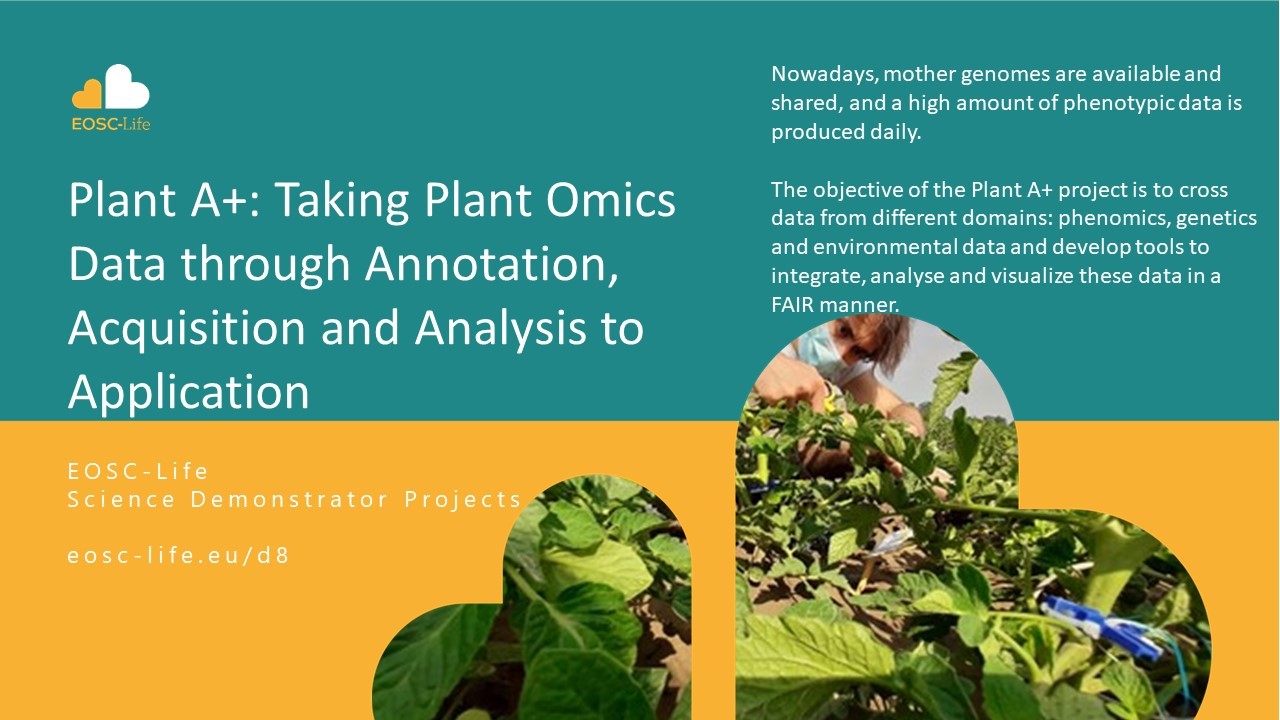
EMPHASIS News: FAIR data in plant phenotyping
The European Infrastructure for Plant Phenotyping, EMPHASIS, is developing a number of pilot services for the phenotyping community. These include data and computational services promoting FAIR data principles and helping users to bridge the gaps towards a local information system. To explain why FAIR data is beneficial for plant research, EMPHASIS has just published a short animated movie. Furthermore, as part of the EOSC-Life project, EMPHASIS has collaborated with ELIXIR and ISBE on the development of data management tools designed to help plant researchers with data analysis, visualisation and integration.
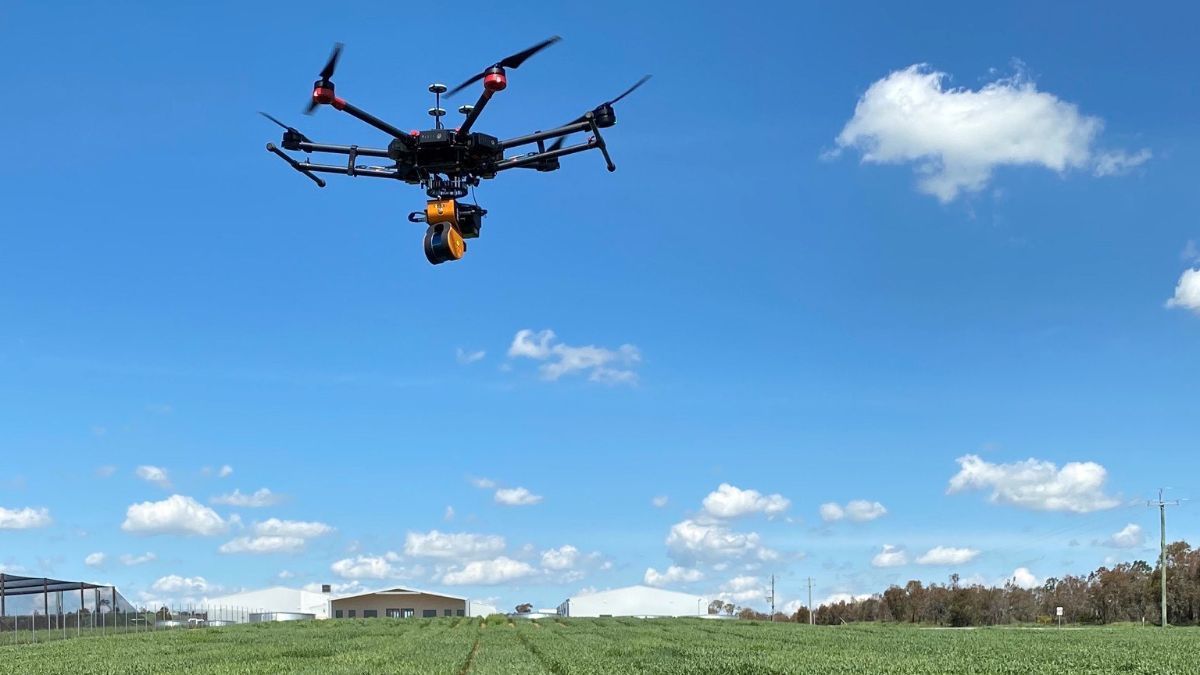
Australian cloud-based data platform for UAV data
The Australian Plant Phenomics Facility (APPF) is working alongside other research infrastructure providers and research organizations to develop the Australian Scalable Drone Cloud (ASDC), supported by the Australian Research Data Commons (ARDC) Platforms program. ASDC aims to standardize collection and analysis of drone data and other 3D data by establishing best-practices in data management based on FAIR data principles and providing cloud-based analytical and computing capabilities. Through the ASDC, researchers will be able to access near-real-time and societally-relevant drone-derived information. APPF’s specific role is in the co-design and development of scalable tools for improved data accessibility, analysis and visualization.
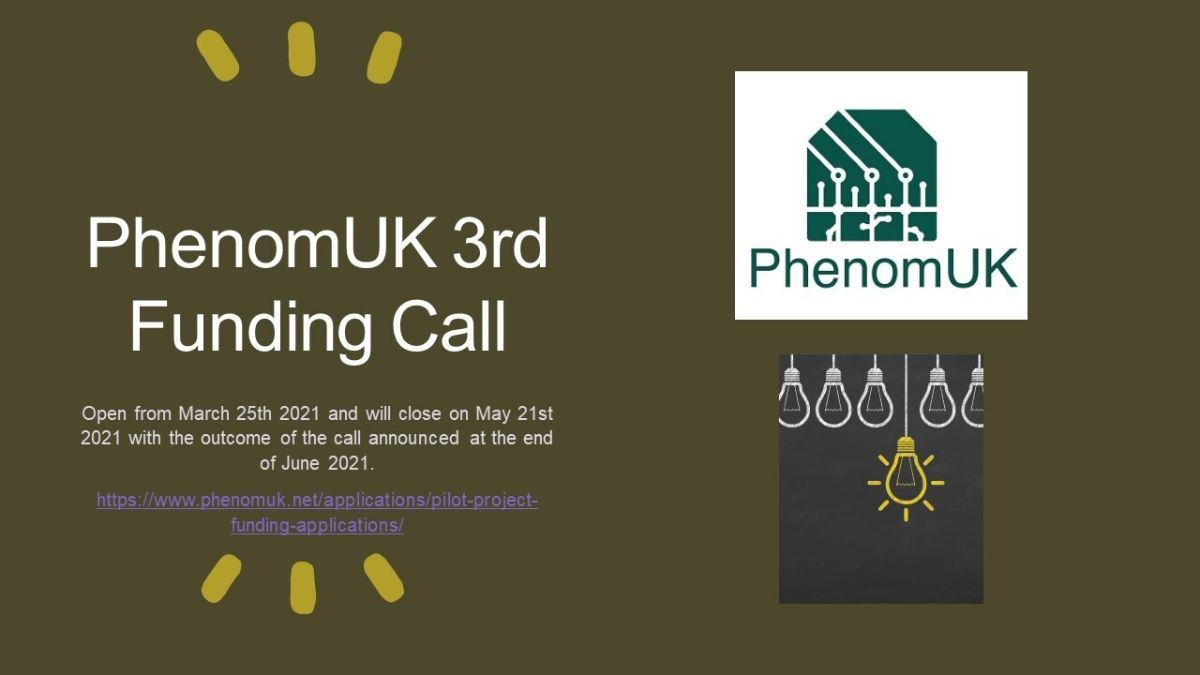
PhenomUK’s 3rd Call for Proposals for Pilot Projects: Open from March 25th - May 21st 2021, with the outcome announced at the end of June 2021
PhenomUK has the ability to fund small (£5-25k) preliminary and feasibility studies, following a light internal review process. This funding is intended to allow recipients to assess emerging technologies against phenotyping tasks and perform initial investigations of promising technology combinations. With the emergence of powerful machine learning approaches, annotated data sets are becoming an increasingly important resource, and it is anticipated that some projects will generate such data sets.
Note that the terms of the Technology Touching Life grant require PhenomUK to fund projects at 80% FEC, and that all grant recipients are required to produce a short description of their project and results to be disseminated to members via the PhenomUK website.
Projects will be assessed on:
-
technical feasibility
-
potential to advance the capabilities and/or range of application of phenotyping technologies
-
potential to create new partnerships between the engineering and physical science and plant and crop science communities
Applications will be particularly encouraged from early career researchers, including postdoctoral fellows.
More information & application form
What we read...
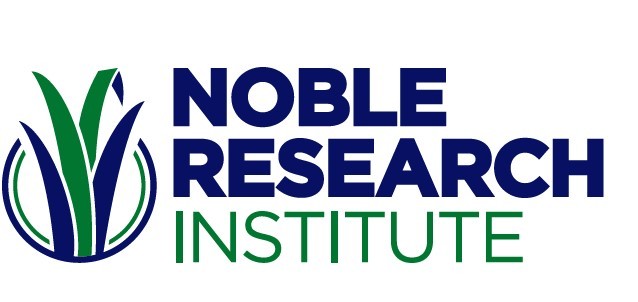
After 75 Years, Noble Research Institute Changes Focus To Regenerative Agriculture
The Noble Research Institute is changing its focus from plant science to regenerative agriculture.
The institute was started in 1945, by Lloyd Noble as a way to revitalize the agriculture industry following the dust bowl. Now, the institute has 350 employees, and a budget of $60 million. About 130 employees focus on research which is largely based in plant science.
Noble Institute CEO Steve Rhines says the new shift gives the institute more of a focus, and aligns with the vision of founder Lloyd Noble. (...)
The plant science efforts will wrap up around the middle of this year, but there have been no layoffs from the shift in priority, Rhines says. Many scientists will have to make a transition, he says.
“For some scientists, as you can envision, they're a plant scientist. They have to make a bit of a decision,” Rhines says. “Am I comfortable putting my traditional career on the shelf, to now work with farmers and ranchers in the field on a landscape scale instead of a laboratory scale?”
(www.kosu.org/local-news/2021-04-20/after-75-years-noble-research-institute-changes-focus-to-regenerative-agriculture)
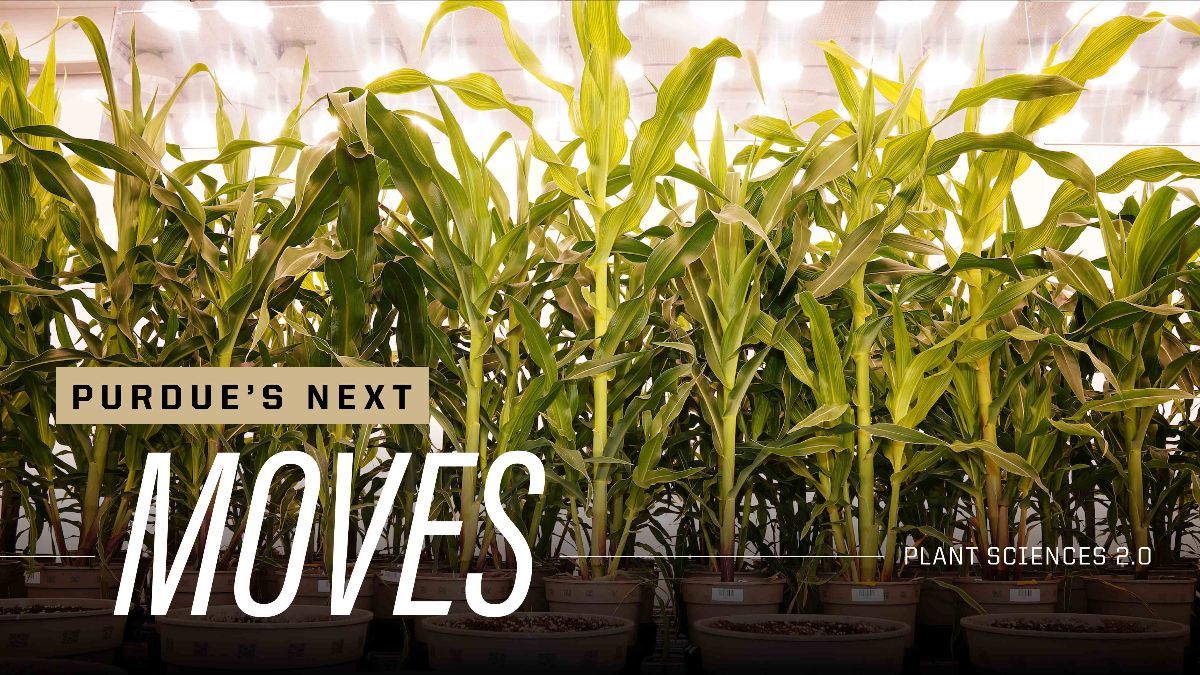
Purdue University will build on the success of their Institute for Plant Sciences and pivot into new areas and disciplines as part of Purdue’s Next Moves, which represent five new strategic initiatives to advance the university’s leadership among the world’s top research and teaching institutions. Previous investments in controlled environment and field-based phenotyping at Purdue have garnered federal and industry grants that have our phenotyping facilities at full capacity. The Plant Sciences 2.0initiative will expand Purdue’s existing capacity and expertise in plant phenotyping, data science, digital forestry and agricultural economics to add value to plants and forest products by optimizing plant productivity, nutrition and sustainability traits, coupling these to consumer preferences.
Learn more about Purdue’s Institute for Plant Sciences
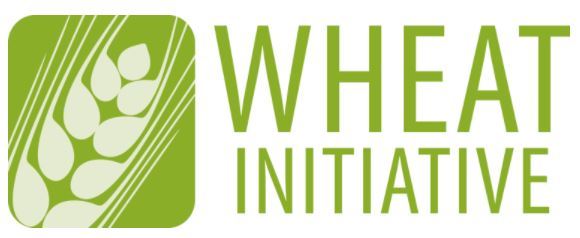
The G20 members of the Wheat Initiative international committee convene
The members of the Wheat Initiative (WI) Institutions’ Coordination Committee came together on April 14 and 15 for a two-day virtual meeting. The WI is an initiative of the G20 group of countries established to co-ordinate international research for wheat improvement.
The Institutions’ Coordination Committee (ICC) brings together representatives of ministries, international agricultural research centres, research funding agencies and research organisations of participating countries, and observer countries. Representatives from Argentina, Australia, Brazil, Canada, China, France, Germany, India, Ireland, Italy, Japan, Morocco, Turkey, United Kingdom, USA, Uruguay, CIMMYT and ICARDA participated in the meeting.
Key achievements were discussed:
-
The Wheat Initiative’s Expert Working Groups (EWG) – with the participation of 635 experts from 47 countries in 11 EWG – the EWGs work to identify opportunities and constraints in research and build collaborations across international borders to progress the development and sustainability of wheat in the global production system.
-
The development of resources to enhance global sharing of resources and information.
-
AHEAD - the new alliance for wheat adaptation to heat and drought that provides a framework for collaboration around enhancing the stress tolerance of wheat.
-
The recognition of the 10-year anniversary of the establishment of the Wheat Initiative.
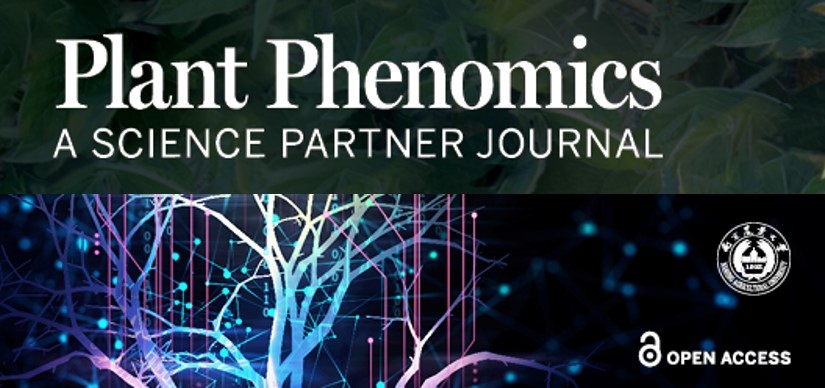
Plant Phenomics now included in Scopus
On March 4, Plant Phenomics was officially included in the Scopus database. This is another important database that the journal has entered after being included in CABI, CNKI, DOAJ, and PMC databases. Scopus includes all the articles of Plant Phenomics from its inception in 2019, which is a high recognition of its quality. Scopus stated in the official notification email that "articles published in Plant Phenomics have high citations among all the journals included in Scopus " and "Plant Phenomics has a well-developed international editorial board".
More information
In 2020, Plant Phenomics (a Nanjing Agricultural University Journal) published two special issues, initiated by IPPN members from University Nebraska-Lincoln & University of Tokyo (Jennifer Clarke & Wei Guo):
-
Statistics, Bioinformatics, and Machine Learning Methods in Phenomics
-
Image Analysis and Machine Learning for Cyber-Agricultural Systems
INSIDE
IPPN
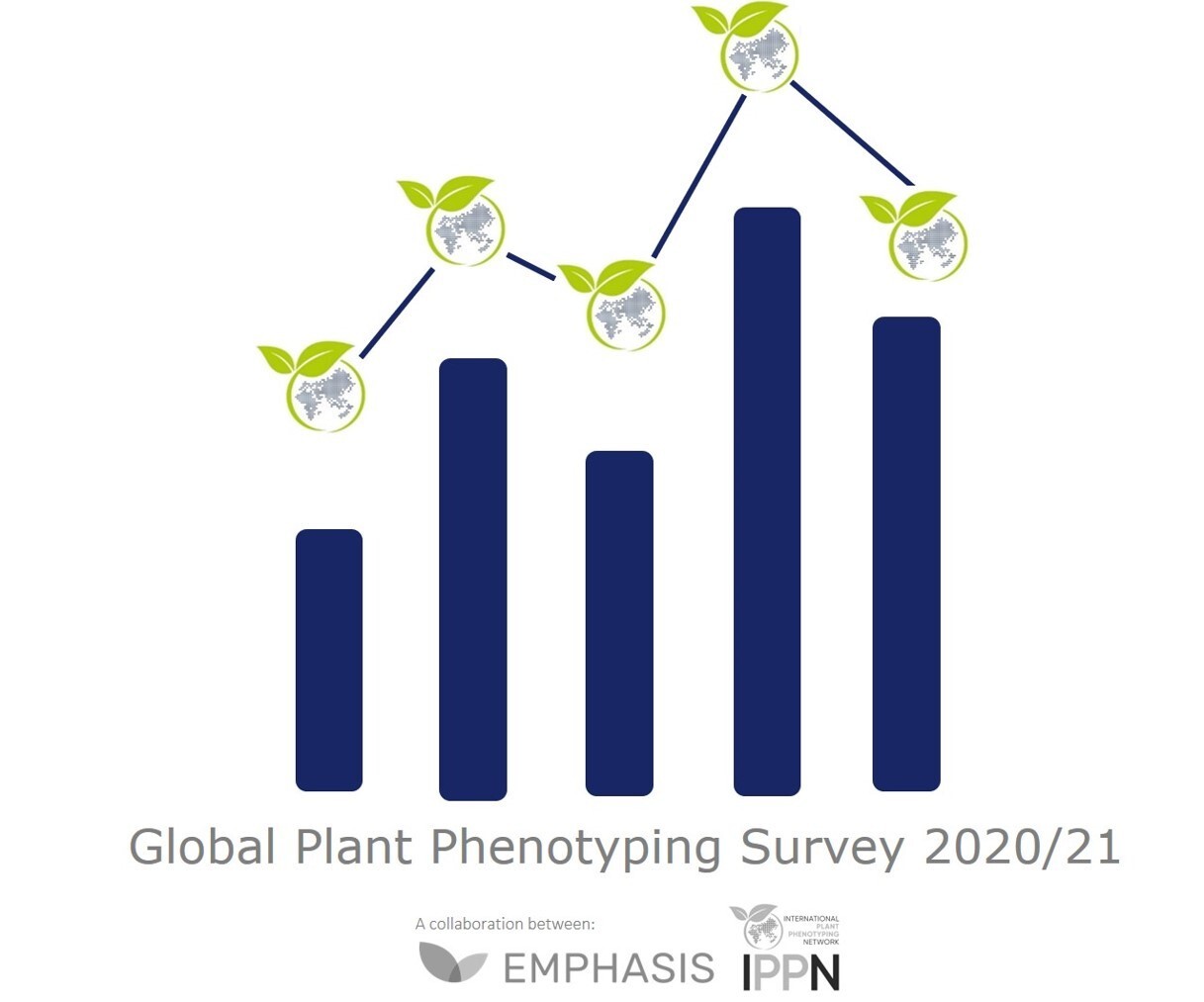
Plant Phenotyping Survey completed: Data available on Zenodo (for free)!
For the past six years, IPPN and EMPHASIS have carried out their bi-annual "Plant Phenotyping Surveys". They cover basic and advanced questions related to plant phenotyping for the purpose of assessing the status of plant phenotyping globally and emerging fields. The surveys address participants from all geographic regions and in all professional disciplines in any way related to plant phenotyping.
After the survey period ended in March 2021, data from >800 participants will be analyzed by EMPHASIS & IPPN throughout 2021 & later this year also will be made available in form of a brochure, summarizing the outcomes (like with previous survey results).
If you however want to check the results for yourself: The data is freely available from now on, via the data repository service Zenodo (DOI: 10.5281/zenodo.4723409).
The survey data provide the primary source of information for our plant phenotyping knowledge base, informing about topics and issues inherent to the international and regional (sub-)communities, in academia and industry. This also helps us to identify potential gaps and understand the demands especially for topics like: Access to research infrastructures, Socio-demographics, Data Management, Harmonization, Life-cycle & support of infrastrucures, Modelling, Field phenotyping, Training, Communication & Community opinion
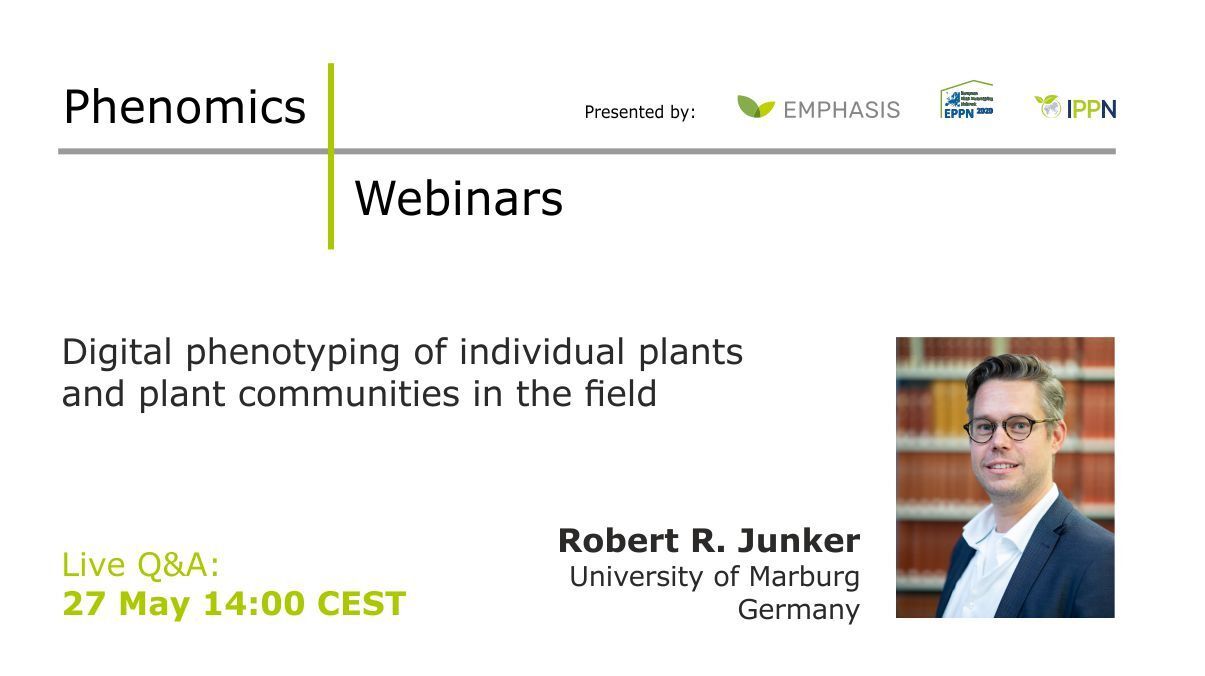
Next PhenomicsWebinars speaker: Prof. Robert R. Junker (University Marburg/ University Salzburg)
Abstract: Plant phenotyping in ecological studies is dominated by “low-throughput” methods such as field measurements of specific traits. However, mostly in agricultural research and applications, “high -throughput phenotyping” became standard. Adopting such methods for ecological studies may provide novel insights and a more complete view on the phenotypic properties of plant communities. Based on a MicroScan equipped with a PlantEye F500 (Phenospex, Heerlen, The Netherlands), we constructed a mobile plant scanner for application in the field independent on electricity supply or any other infrastructure. Using this device, we scanned whole plant communities. Structural and spectral information resulting from these scans was predictive for land use management. In another study, we scanned individual strawberry plants (Fragaria x ananassa) exposed to different environmental conditions. Again, structural and spectral information reflected the different water and wind treatments. In conclusion, the mobile version of the PlantEye F500 is suitable for lab, greenhouse, and field applications and provides novel and valuable data for ecological studies.
If you want to stay up-to-date for any new videos, feel free to check theSeason 1 Roadmap on our homepage or simply subscribe to our dedicatedPhenomicsWebinars Newsletter.
...& don't forget to send us questions via email before our Live Q&A with Prof. Junker, on May 27th!!
Any video of this series will also be uploaded to the IPPN Youtube-channel, afterwards.
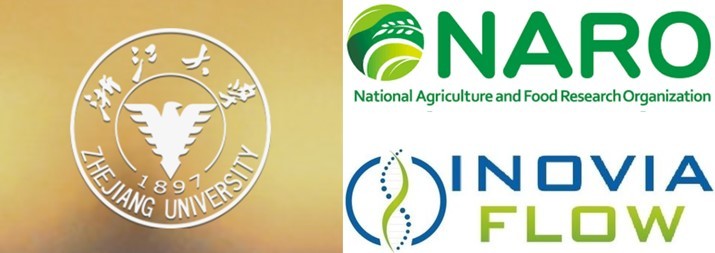
Plant Phenotyping Survey completed: Data available on Zenodo (for free)!
3 New IPPN Members: Zhejiang University; NARO; InoviaFlow
IPPN is very happy to welcome three new IPPN members, which were admitted by the IPPN Board in Q2 2021:
Zhejiang University (ZJU) is one of China’s top higher education institutions, as well as one of its oldest; its roots can be traced back to 1897 and the founding of the Qiushi Academy.
Located in Hangzhou – one of China’s most picturesque cities – the University is organized across seven faculties and 37 schools. It is home to 3,941 full-time faculty members, including 50 members of the Chinese Academy of Sciences and the Chinese Academy of Engineering.
Prof. Haiyan Cen will be ZJU's representative for IPPN. Her research focuses around:
-
The investigation of complex light interactions with plant materials to provide a fundamental guidance of developing new optical sensing technologies across the area of agriculture and food.
-
The development of high-throughput plant phenotyping systems from greenhouse to open-field based on hyperspectral imaging, three-dimensional imaging, and chlorophyll fluorescence imaging
-
Machine learning and mechanistic modeling for improving big phenotypic data processes
The National Agriculture and Food Research Organization (NARO) is the core institute in Japan for conducting research and development on agriculture and food. "Our overall mission is to contribute to the development of society through innovations in agriculture and food, by promoting pioneering and fundamental R&D. We conduct technological development to make agriculture a competitive and attractive industry, and contribute to increasing the nation's food self-sufficiency rate."
In recent years, NARO has been developing various phenotyping systems to promote smart-agriculture and breeding. One of NARO's primary objectives within IPPN is to promote exchange with other IPPN member institutions & develop them into future collaborative research. This intention follows up on previous, already very successfull collaborations, like the one between NARO & WUR.
NARO's phenotyping focus lies in applying UAV and image technologies to diagnose plant growth & to select breeding lines. In the lab, NARO is developing high-throughput, non-destructive image-analysis platforms for root system architecture using X-ray CT.
NARO's IPPN represenbtative is Dr. Masao ISHIMOTO, Division Director at the Basic Research Institute of Crop Science within NARO.
InoviaFlow is a France-based company specializing in the developemnt of high-throughput phenotyping systems for roots, best-known for phenotyping technologies like Rhizotube & Rhizocab. These technologies have been well applied within InoviaFlow's work together withDr. Christophe Salon (INRAe) on the high-throughput phenotyping facility “4PMI” in Dijon. The IPPN webinar series PhenomicsWebinars recently featured Christophe's work in its April issue.
InoviaFlow is working together with prominent distributors like Qubit Systems (CAN), Phenoware (FR) & PhenoTrait (PRC).
Christophe Baussart on his behalf CEO of InoviaFlow is aiming to extend their businesses through being close to the IPPN community & being able to interact, discuss & listen to the demands of researchers & applicationists within plant phenotyping.
UPCOMING
CONFERENCES
State-of-the-Art Tools & Approaches in Plant Phenotyping (ECOBREED),24 - 25th May 2021
The aim of the training program is to introduce and present to the young researchers, breeders, and farmers and policy makers the benefits of the use of improved phenotyping. During the training, participants will gain new knowledge from applied and basic research on phenotyping and the necessary skills to improve the selection and breeding of organic crops and contribute to the transfer of technologies developed into commercial practice. The ambition of the educational program will be the implementation of an experiment using high throughput phenotyping methods, which is currently one of the limiting factors in the genetic and physiological analysis of plants. This online workshop is organised by Horizon 2020 project ECOBREED and implemented by NPPC and PSI. Registration is mandatory, link will be forwarded to the registered participants.
Program & Registration
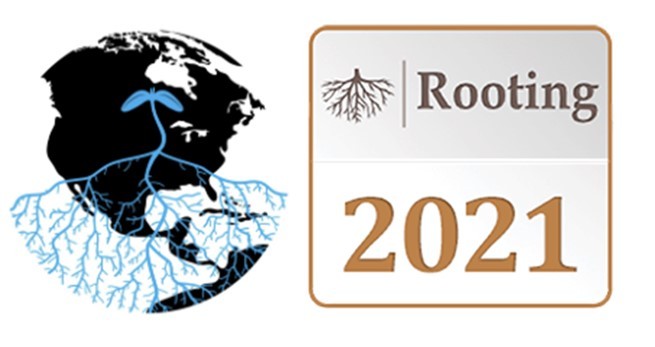
Virtual Meeting: “Root Biology Never Sleeps”, May 24th - 28th 2021;Sponsored by IPPN
Due to the ongoing effects of the pandemic on travel, the previously announced collaboration between ISRR11 and ROOTING2021 will now be a joint, entirely virtual meeting – “Root Biology Never Sleeps”. The joint meeting is being co-organized by the Interdisciplinary Plant Group at the University of Missouri, Columbia, USA, and the University of Nottingham, UK.
This joint meeting will bring together the global root research community to foster exchange and discuss new discoveries, developments, and challenges in root biology. The meeting will address root research across different scales from the molecular- to the ecosystem-level in agricultural and natural systems.
Schedule & registration
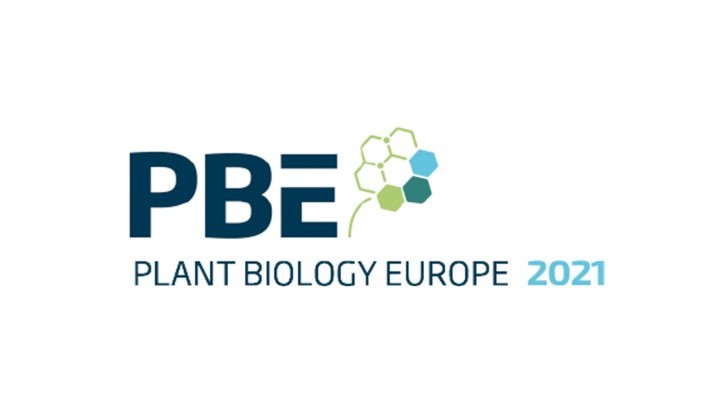
Virtual conference: Plant Biology Europe, June 28th – July 1st 2021
"Plant biology is a blooming scientific area where novel developments continuously arise, opening new avenues of research and empowering innovation for agriculture and for food and non-food applications. In the frame of a well-established tradition of biennial congresses jointly organized by the Federation of European Societies of Plant Biology (FESPB) and the European Plant Science Organization (EPSO), the Plant Biology Europe (PBE) Congress was originally planned for June 2020 in Turin, Italy but was postponed to the following year due to the Covid-19 pandemic. PBE2021 will be held online from 28 June to 1 July, 2021 with the support of the Turin organizing group. PBE2021 focuses on delivering the latest scientific developments in plant biology, following an inclusive approach where long-standing research sectors and novel breakthrough topics are showcased, including aspects of science policy and ethics, and fostering participation of young scientists. We warmly invite plant biology researchers from all over the world to contribute to a vibrant, successful, and health-safe Congress by presenting and discussing their work and results at PBE2021!"
Schedule & registration
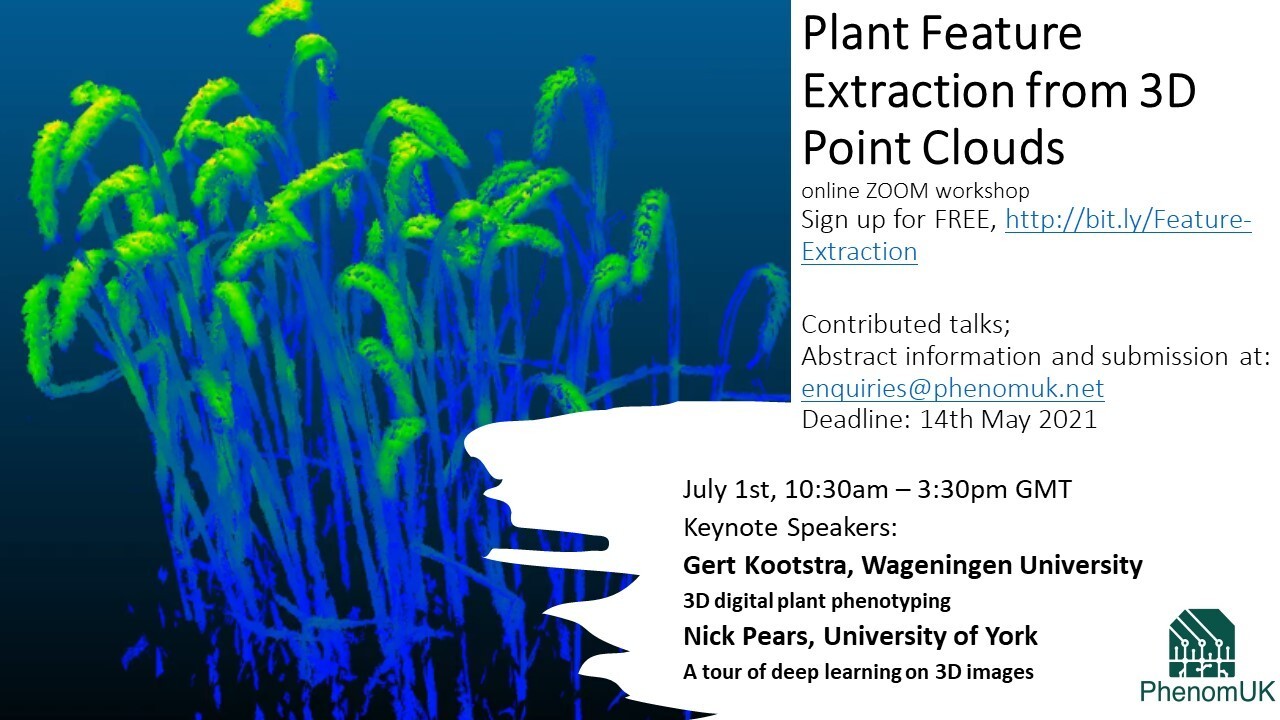
Free Workshop (Virtual): Plant Feature Extraction from 3D Point Clouds, 1st July, 10:30 am - 3:30 pm (GMT)
3D imaging is increasingly being used in the context of crop imaging, driven in large part by the challenge of high throughput phenotyping (identification of effects on plant structure and function resulting from genotypic differences and environmental conditions). This workshop will focus upon the general challenge of feature extraction from 3D imaging such as point clouds, bringing together those working on challenges of this type in different applications, including crop imaging. The workshop will provide the opportunity to discover together how cutting edge computer vision approaches find application in crop imaging.
Specific topics of interest include, but are not limited to, the following:
-
generic methods for extraction of features from 3D imaging including deep learning
-
advances in segmentation, tracking, detection, reconstruction and identification methods for 3D imaging which address unsolved plant phenotyping problems
-
advances in feature extraction and related 3D imaging computer vision tasks which address challenges in other applications
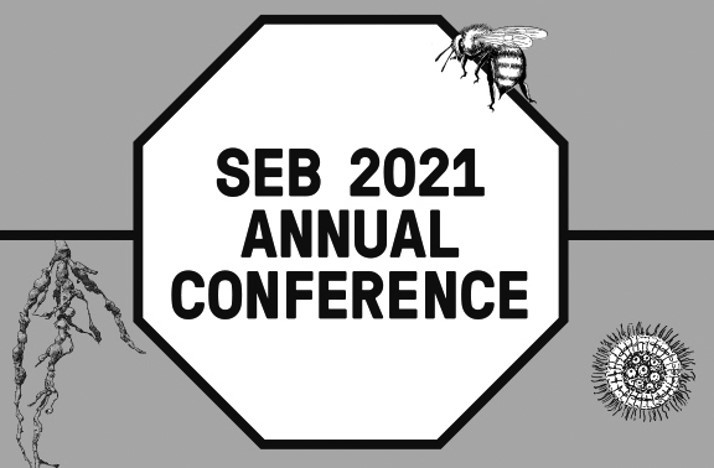
Society for Experimental Biology (SEB) Annual Conference 2021 (Virtual), 29th June – 8th July
The virtual conference is a spectacular setting for discussing the latest scientific developments and networking with your community of biologists.
Schedule & registration
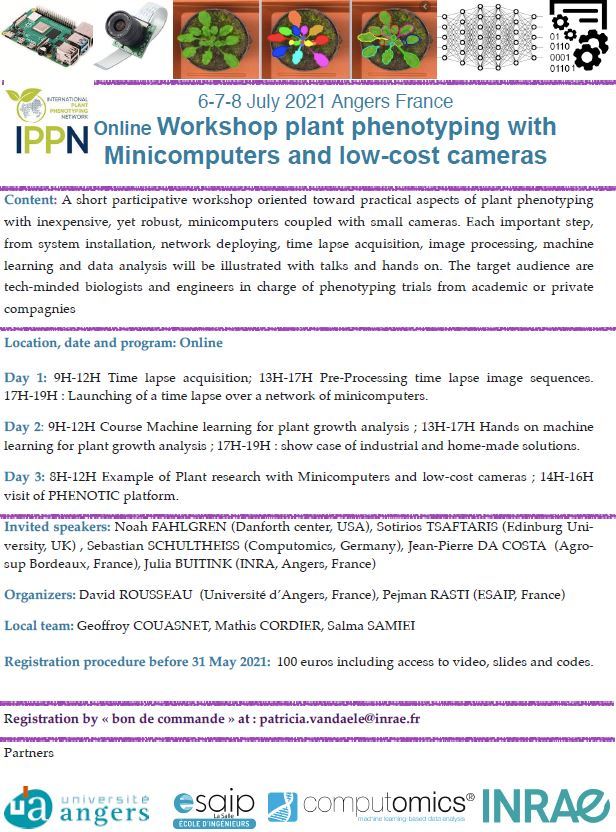
IPPN Workshop (Affordable Phenotyping Working Group): Plant Phenotyping with Minicomputers and Low-Cost Cameras, 6th - 8th July 2021
A short participative workshop oriented toward practical aspects of plant phenotyping with inexpensive, yet robust, minicomputers coupled with small cameras. Each important step, from system installation, network deploying, time lapse acquisition, image processing, machine learning and data analysis will be illustrated with talks and hands on.
The target audience are tech-minded biologists and engineers in charge of phenotyping trials from academic or private compagnies.
More information
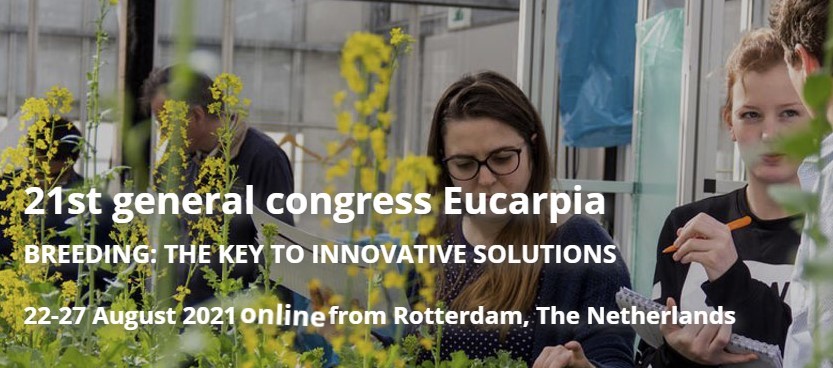
21st general congress Eucarpia; BREEDING: THE KEY TO INNOVATIVE SOLUTIONS; 22-27 August 2021 online from Rotterdam, The Netherlands
EUCARPIA’s main event – the General Congress – is held every four years at different locations. As a result of the corona crisis, we had to postpone the 2020 Congress for one year. The next General Congress will now be held online at 23rd, 24th, 25th and 26th August 2021. On this occasion, experts and researchers from all over the world will present and discuss their findings and visions for meeting the great challenges that plant breeding will face in the next decades to integrate the many new technologies, skills and human experience into coherent breeding strategies under the theme:
Breeding: the key to innovative solutions
On behalf of EUCARPIA and Wageningen University and Research, we cordially invite you to participate in the online version of the 21st General Congress from Rotterdam, the Netherlands.
CALLS &
SPECIAL ISSUES

Call for papers: CVPPA Workshop at the International Conference on Computer Vision (ICCV) 2021; either (!) 11th, 16th or 17th October 2021 (TBA)
Following successful CVPPP workshops from recent years at ECCV, BMVC, ICCV, and CVPR, CVPPP this year is held in conjunction with ICCV 2021. In this seventh workshop we aim to expand the scope of CVPPP to include computer vision research in agriculture more broadly. To reflect this change we have renamed the workshop to CVPPA: Computer Vision in Plant Phenotyping and Agriculture. The goal of the workshop remains to extend the state of the art in computer vision for plant and crop applications.
Computer vision in agriculture problems tend to revolve around automation problems, such as automated detection of plant organs for automated weeding or harvest. The images are acquired in a variety of contexts: forests, fields, greenhouses or controlled environments, packing houses, etc. Since these definitions are quite broad, please contact the organizers if you are unsure about whether your submission is in the scope of the workshop.
Submission due (full paper or 1 page abstract): 16th July 2021
Notification of acceptance: 06th August 2021
Camera-ready (papers and abstracts): 17th August 2021
More information
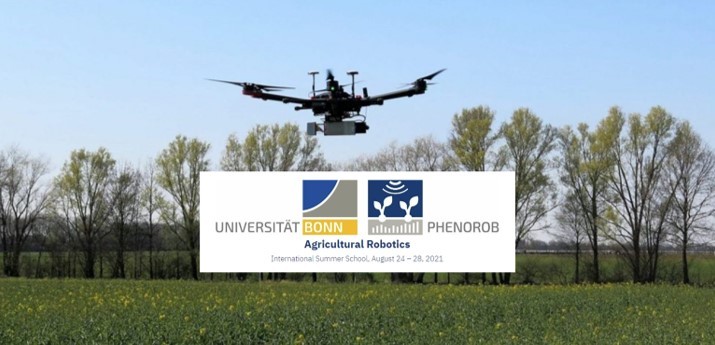
Call for applications: International Summer School (Virtual): Agricultural Robotics, August 24th – 28th 2021
The International Summer School will take place online, consisting of workshops, pre-recorded video talks, discussions and networking events. The event will be realized via an online conferencing tool. The summer school is free of charge for all participants and presenters and will be taught in English. Target groups are advanced master’s students (second year) & early doctoral students (first year). All nationalities are welcome!
In the context of the Summer School, these topics will be addressed and worked on in separate workshops:
-
Introduction to Machine Learning
-
Deep Learning for Applied Image Classification
-
Basics of Graph-based Simultaneous Localization and Mapping (SLAM)
-
Crop Phenotyping for Increased Sustainability
-
A Practical Tutorial in Robot Perception and Control
-
Analyzing Temporal Visual Data and Forecasting
-
Economics of Robotics and Sensing Applications in Agriculture
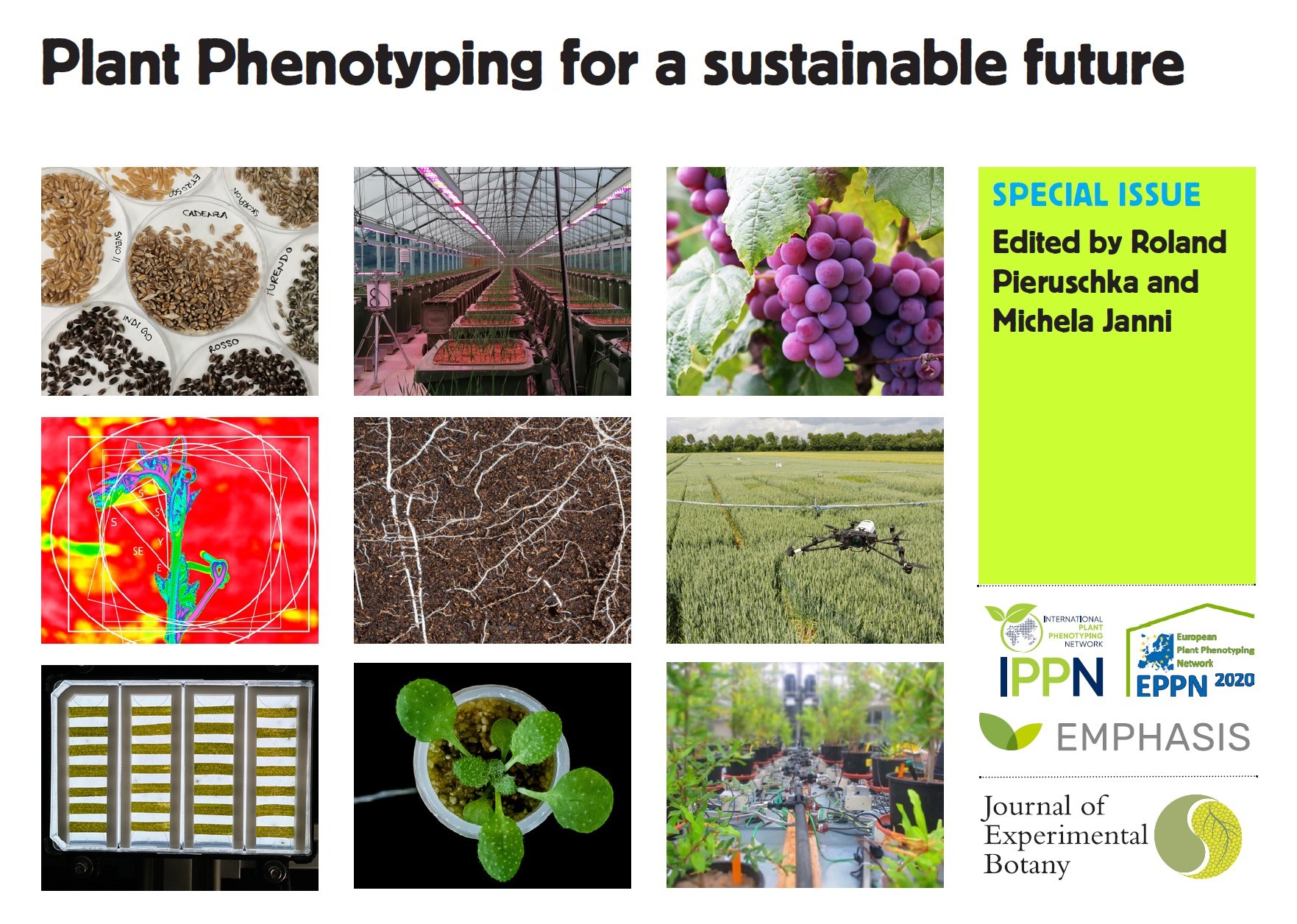
Special Issue: Plant Phenotyping for a Sustainable Future in Journal of Experimental Botany; Submission deadline: October 31st 2021
The invited papers in this special issue - published in association with the Society of Experimental Biology virtual conference (SEB2021), theInternational Plant Phenotyping Network, the EU project EPPN2020, and the plant phenotyping research infrastructure EMPHASIS - focus on plant phenotyping as the key tool for understanding plant-environment interactions. The collected reviews will explore how this understanding translates into improving plant and crop productivity, quality, and tolerance to biotic and abiotic stress, including cross links to molecular biology, plant breeding, genetics and genomics, and bioinformatics.
We welcome contributions to this special issue. If you would like to submit a paper (either research or review), please submit here. On the ‘manuscript basics’ page, please enter "TOC category: Special issue" & "Special issue topic: PHENOTYPE" All papers are peer reviewed to the usual standards and must fit within the scope of the journal.
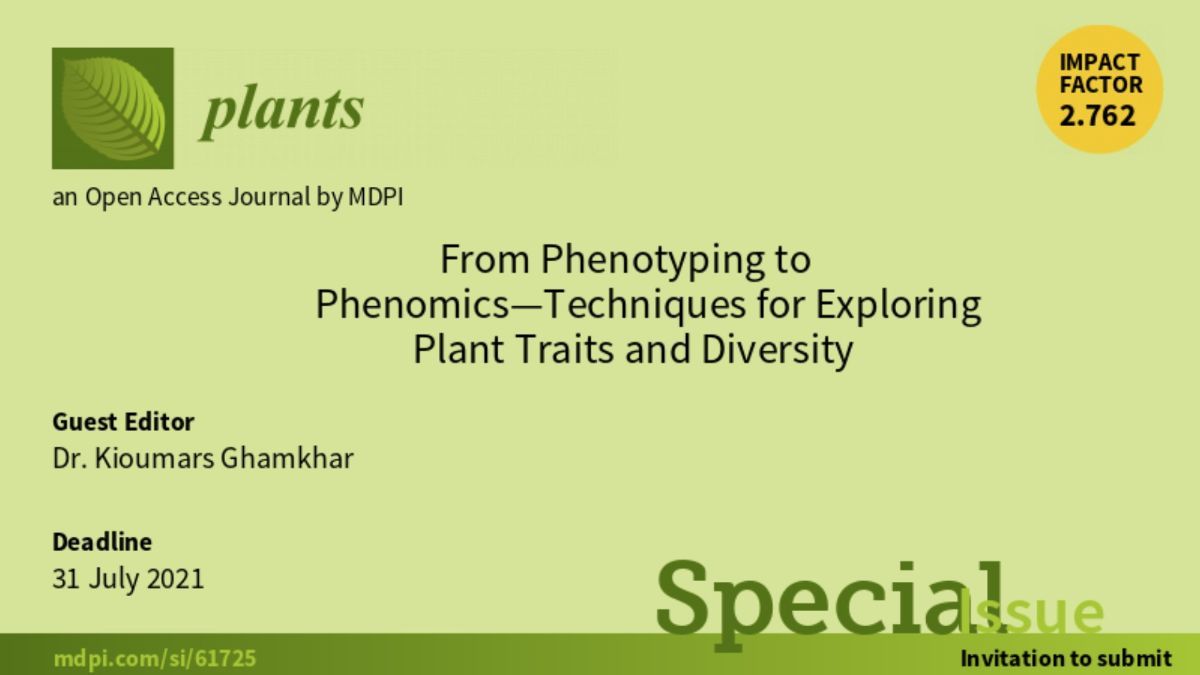
"plants" Special Issue 1/4: From Phenotyping to Phenomics - Techniques for Exploring Plant Traits and Diversity; Submission deadline: July 31st 2021
IPPN member AgResearch (New Zealand) kicks-off new Special Issue in "plants". This Special Issue aims to bring together a range of research papers that cover plant phenotyping at large-scale from hundreds of genotypes using simple and repeatable technology to small-scale using high-tech and accurate methods and anything in between.
Keywords
-
digital technologies
-
plant phenotyping
-
plant phenomics
-
machine vision
-
computer vision
-
plant visualization
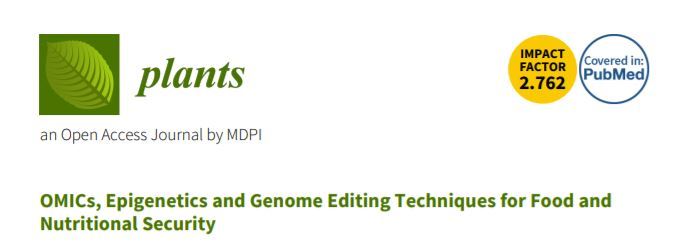
"plants" Special Issue 2/4: OMICs, Epigenetics and Genome Editing Techniques for Food and Nutritional Security; Submission deadline: September 30th 2021
"(...) this Special Issue, we will publish reviews and original research papers that advance our understanding of novel plant breeding techniques that can help to accelerate the breeding programs with high efficiency and reliability. The scientific information on OMICs, Epigenetics and Genome Editing Techniques can help to unearth the underlying biological mechanism in plants, which is key to ensure food and nutritional security worldwide."
More information & manuscript submission
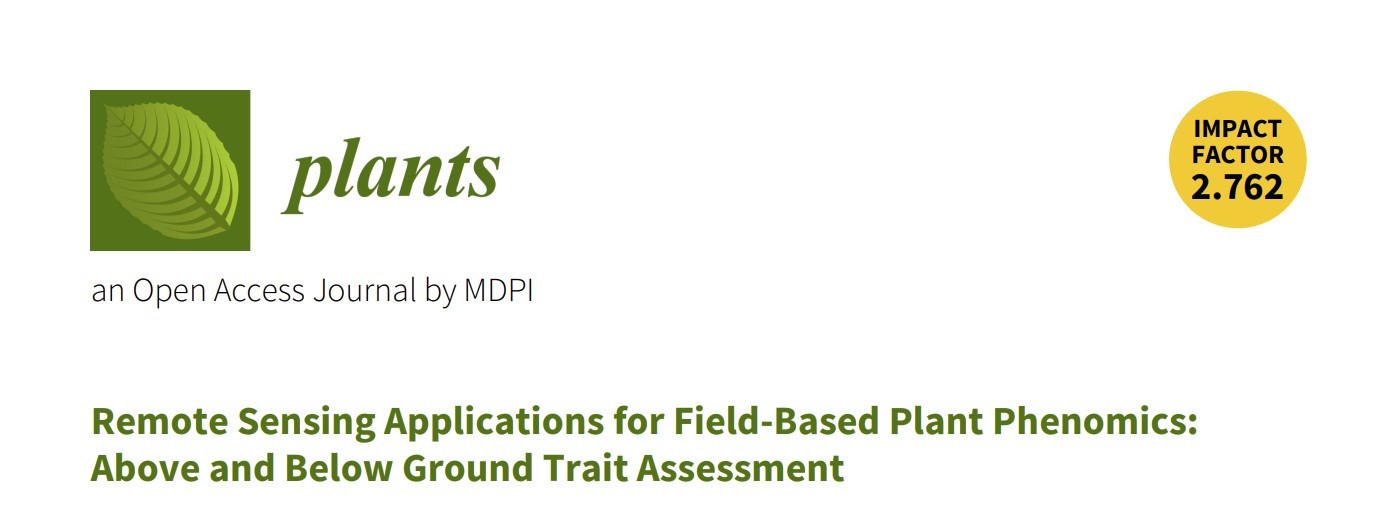
"plants" Special Issue 3/4: Remote Sensing Applications for Field-Based Plant Phenomics: Above and Below Ground Trait Assessment
; Submission deadline: January 31st 2022
Our understanding of the link between phenotype and genotype is currently hampered by the crop science community's insufficient capacity to analyze the existing genetic resources for their interaction with the environment. As a result, there is significant importance in developing improved methods for rapid, high-throughput image analyses of numerous crop traits, such as growth, morphology, abiotic stress tolerance, disease, and pest resistance. Advances in phenomics, robotics, remote sensing, artificial intelligence, and computer vision are enabling mechanization of data collection, non-invasive measurement methods, and automation of image data analysis. Besides, many innovative approaches to measure above-ground (shoot) phenotyping are increasing, to study below-ground (root) growth dynamics in real-time is yet limited and challenging. Therefore, advances in developing high-throughput phenotyping methods and tools are essential for successfully characterizing above (shoot/crop) and below-ground (root) phenes to design next-generation crops as crucial components for climate-smart or eco-efficient agriculture.
More information & manuscript submission
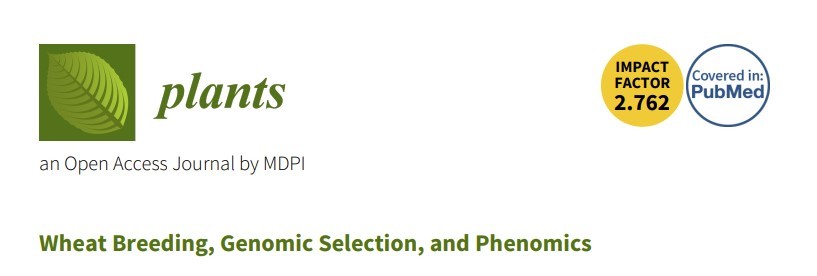
"plants" Special Issue 4/4: Wheat Breeding, Genomic Selection, and Phenomics; Submission deadline: September 30th 2021
"(...) Wheat breeding programs typically require 10–15 years to transfer novel genes into elite germplasms. Through the application of GS, it is possible to select new parents purely based on GEBV, before being entered in field trials and nurseries. We expect GS to be intensively applied in wheat breeding programs, given its numerous advantages, such as improving selection gain, reducing the need for labor-intensive and costly phenotyping at disease nurseries, and accelerating the utilization of genetic variation. It is also possible to predict breeding values for a very large number of candidates that could not be feasibly evaluated phenotypically, thus leading to increased selection intensity. However, there is still limited information on the implementation of GS in applied wheat breeding programmes.
Therefore, this Special Issue of Plants is composed to address this question by focusing on empirical GS studies addressing important traits in wheat; combining GS with MAS; modelling multiple traits, epistatics, and genotypes through environmental interaction; enhancing the predictability of GS for wheat breeding through machine learning empowered high-throughput and precise phenotyping; and cost effective applications of “omics” data."
More information & manuscript submission
RECENT
PUBLICATIONS
-
Atieno J, Colmer TD, Taylor J, Li Y, Quealy J, Kotula L, Nicol D, Nguyen DT, Brien C, Langridge P, Croser J, Hayes JE and Sutton T (2021) Novel Salinity Tolerance Loci in Chickpea Identified in Glasshouse and Field Environments. Front. Plant Sci. 12:667910. doi: 10.3389/fpls.2021.667910
-
Bashyam S, Choudhury SD, Samal A, Awada T. (2021) Visual Growth Tracking for Automated Leaf Stage Monitoring Based on Image Sequence Analysis. Remote Sensing. ; 13(5):961.doi.org/10.3390/rs13050961
-
N. Chebrolu, F. Magistri, T. Läbe, and C. Stachniss (2021) Registration of Spatio-Temporal Point Clouds of Plants for Phenotyping, PLOS ONE. doi.org/10.1371/journal.pone.0247243
-
Colmer, J., O'Neill, C.M., Wells, R., Bostrom, A., Reynolds, D., Websdale, D., Shiralagi, G., Lu, W., Lou, Q., Le Cornu, T., Ball, J., Renema, J., Flores Andaluz, G., Benjamins, R., Penfield, S. and Zhou, J. (2020), SeedGerm: a cost‐effective phenotyping platform for automated seed imaging and machine‐learning based phenotypic analysis of crop seed germination. New Phytol, 228: 778-793. https://doi.org/10.1111/nph.16736
-
K.O.G. Dias, Jhonathan R.P. dos Santos, Matheus D. Krause, Hans-Peter Piepho, Lauro J.M. Guimarães, Maria M. Pastina, Antonio A.F. Garcia (2021) Leveraging probability concepts for genotype by environment recommendation. bioRxiv 2021.04.21.440774; doi.org/10.1101/2021.04.21.440774
-
L. Fattel, D. Psaroudakis, C. F. Yanarella, K. Chiteri, H. A. Dostalik, P. Joshi, D. C. Starr, Ha Vu, Kokulapalan Wimalanathan, C. J. Lawrence-Dill (2021) Standardized genome-wide function prediction enables comparative functional genomics in plants: a new application area for Gene Ontologies. bioRxiv 2021.04.25.441366; doi.org/10.1101/2021.04.25.441366
-
Gano B, Dembele JSB, Ndour A, Luquet D, Beurier G, Diouf D, Audebert A. (2021) Using UAV Borne, Multi-Spectral Imaging for the Field Phenotyping of Shoot Biomass, Leaf Area Index and Height of West African Sorghum Varieties under Two Contrasted Water Conditions. Agronomy. ; 11(5):850. doi.org/10.3390/agronomy11050850
-
A. Hajjarpoor, J. Kholová, J. Pasupuleti, A. Soltani, J. Burridge, S. Babu Degala, S. Gattu, T.V. Murali, V. Garin, T. Radhakrishnan, V. Vadez (2021)Environmental characterization and yield gap analysis to tackle genotype-by-environment-by-management interactions and map region-specific agronomic and breeding targets in groundnut, Field Crops Research, Volume 267, 108160, ISSN 0378-4290,https://doi.org/10.1016/j.fcr.2021.108160.
-
Medina-Cordoba, L.K., Chande, A.T., Rishishwar, L. et al. (2021) Genomic characterization and computational phenotyping of nitrogen-fixing bacteria isolated from Colombian sugarcane fields. Sci Rep 11, 9187.doi.org/10.1038/s41598-021-88380-8
-
Ober, E.S., Alahmad, S., Cockram, J. et al. (2021) Wheat root systems as a breeding target for climate resilience. Theor Appl Genet (2021).doi.org/10.1007/s00122-021-03819-w
-
Pazhamala, L. T., Kudapa, H., Weckwerth, W., Millar, A. H., & Varshney, R. K.. (2021) Systems biology for crop improvement. Plant Genome. 2021;1–23. doi.org/10.1002/tpg2.20098
-
H. Sjulgård, D. Iseskog, N. Kirchgessner, A. Glyn Bengough, T. Keller, T. Colombi (2021)Reversible and irreversible root phenotypic plasticity under fluctuating soil physical conditions,Environmental and Experimental Botany, Volume 188, 104494, ISSN 0098-8472, doi.org/10.1016/j.envexpbot.2021.104494.
-
Taheri-Garavand, A., Rezaei Nejad, A., Fanourakis, D. et al. (2021) Employment of artificial neural networks for non-invasive estimation of leaf water status using color features: a case study in Spathiphyllum wallisii. Acta Physiol Plant 43, 78 .doi.org/10.1007/s11738-021-03244-y
-
Tripathi P, Subedi S, Khan AL, Chung YS, Kim Y. (2021) Silicon Effects on the Root System of Diverse Crop Species Using Root Phenotyping Technology. Plants (Basel). 2021 Apr 28;10(5):885. doi: 10.3390/plants10050885.
-
Varshney RK, Bohra A, Yu J, Graner A, Zhang Q, Sorrells ME. (2021)Designing Future Crops: Genomics-Assisted Breeding Comes of Age. Trends Plant Sci. 2021 Apr 20:S1360-1385(21)00069-8. doi: 10.1016/j.tplants.2021.03.010.
-
Waese-Perlman B, Pasha A, Ho C, et al. (2021) New Species, Viewers, Data Sets, and Widgets. bioRxiv; 2021. DOI: 10.1101/2021.04.28.441805.
-
J. Weyler, A. Milioto, T. Falck, J. Behley and C. Stachniss (2021) Joint Plant Instance Detection and Leaf Count Estimation for In-Field Plant Phenotyping, in IEEE Robotics and Automation Letters, vol. 6, no. 2, pp. 3599-3606, doi: 10.1109/LRA.2021.3060712.
-
Zhou, S., Chai, X., Yang, Z. et al. (2021) Maize-IAS: a maize image analysis software using deep learning for high-throughput plant phenotyping. Plant Methods 17, 48. doi.org/10.1186/s13007-02
PLANT
PHENOTYPING
JOBS
Open Positions
The Plant Phenome Journal Editor, American Society of Agronomy & Crop Science Society of America, USA
Software developer for plant phenotyping installations, ILVO, Melle. Belgium
Machine vision engineer, SMO e.g., Eeklo, Belgium
Reviews Editor – Journal of Experimental Biology (maternity cover), Cambridge, UK
Senior Scientist, Plant Imaging, Upward Farms, NY, USA
Assistant/Associate Professor: Precision Agriculture in Specialty Crops, IFAS, FL, USA
Assistant Professor: Phenomics for Plant Breeding Applications, IFAS, FL, USA
Assistant/Associate Professor, Digital Agriculture Agronomist/Biological Engineer, Texas A&M, USA
Faculty Cluster Hire in Integrative Precision Agriculture (Open Rank), University of Georgia, USA
Graduate Research Assistantship, Phenomics Lab, Washington State University, USA
Postdoctoral Positions
Post-doc position in adaptation of winter wheat to climate change, Paris, France
Postdoctoral position available in plant ecophysiology, INRAe, Montpellier, FR
Postdoctoral position available in root system modeling, INRAe, Montpellier, FR
Post-doc position in Precision Agriculture Lab, Washington State University, USA
Postdoc on the computing side of high-throughput phenotyping systems, Univesity of Georgia, USA
PhD positions
6 PhD Positions in the graduate program "Quantitative Plant Sciences", IBG-2, Juelich, Germany
推荐新闻
视频展示
